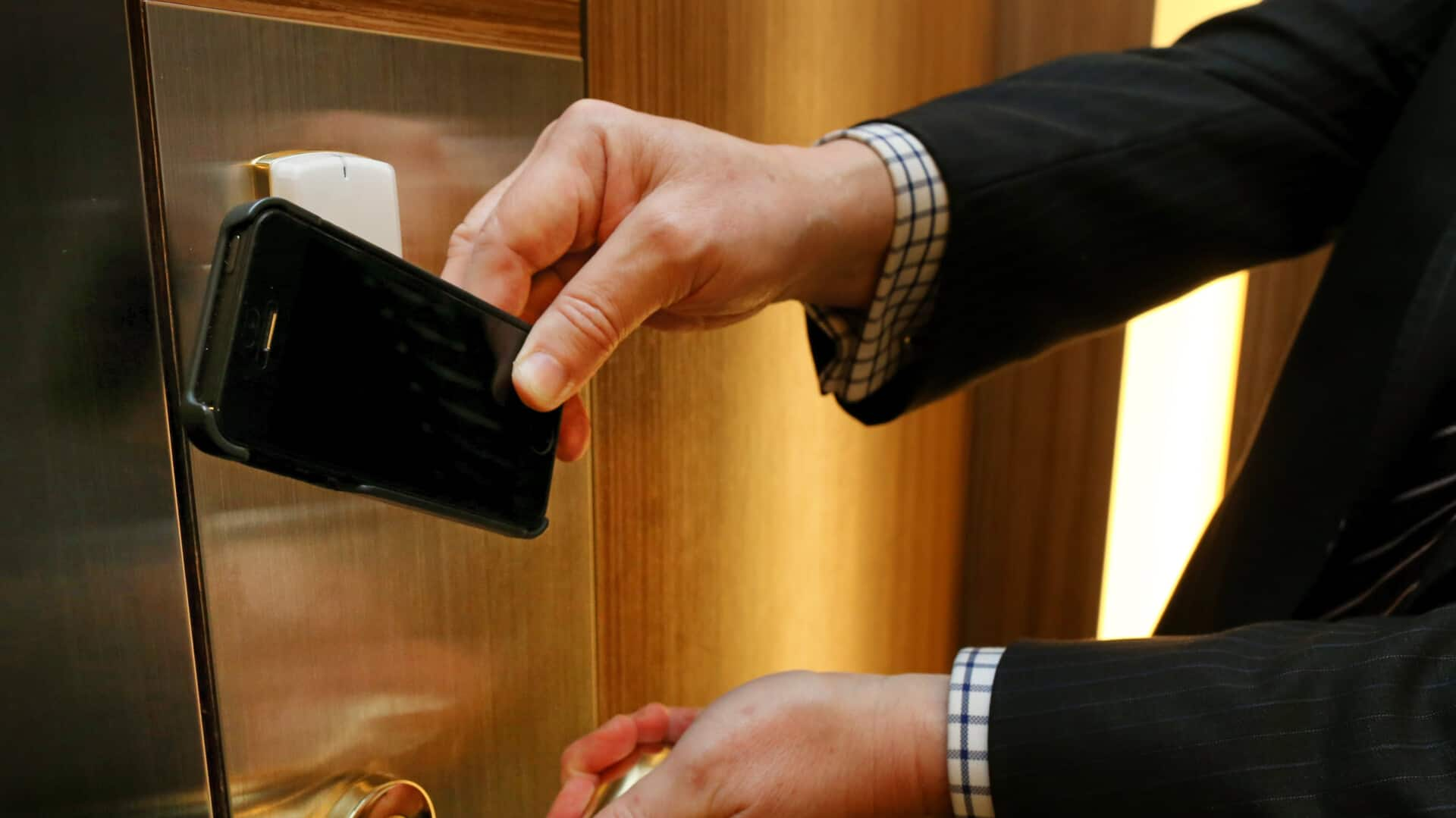
How Apple, Google wallets are making hotel stays more secure
What's the story
Several hotel chains are considering replacing traditional plastic room keys with digital alternatives available on Apple Wallet and Google Wallet apps. This shift is being driven by the COVID-19 pandemic's emphasis on touchless interactions and growing cybersecurity concerns related to hotel key technology. A recent study revealed a security flaw in plastic hotel keys that could potentially expose up to three million keys to hackers, necessitating years for rectification.
Technological shift
Digital keys: The future of hotel room access
Major US hotel chains have been offering digital key options for some time now. Apple Wallet and Google Wallet are enhancing this trend by allowing hotels to store guests' room keys in their apps. Guests can then access their rooms by tapping their phones against a reader near the door handle. Eli Fuchs from Valor Hospitality Partners, which manages Hilton and Holiday Inn Express hotels, stated that "traditional hotel room keys are staring down the end of their existence."
Digital adoption
Hilton Hotels leads the digital key revolution
Hilton Hotels has pioneered this change with its Honors app, which enables guests to check-in and use a room key via their smartphone. The Harpeth Hotel in Franklin, Tennessee, a Hilton property, offers guests the option to check-in digitally and store keys in their Google or Apple wallet app. Kimberly Elder from the Harpeth Hotel noted that while many guests still prefer plastic key cards, "the benefit to the digital check-in is that your phone is the key."
Security challenges
Security concerns persist with digital hotel keys
Despite the convenience of digital keys, security experts warn that these new lock methods are not infallible. Lee Clark from Retail and Hospitality Information Sharing and Analysis Center (RH-ISAC) stated that "keyless systems can introduce entirely new threat vectors for hotel security operations to manage." He suggested that these risks could be managed through security control policies and configurations like multifactor authentication (MFA), but acknowledged that such measures might add extra steps for guests.
Adoption hurdles
Slow adoption and cost hinder digital key transition
Clark also pointed out that not all hotels are likely to replace their key cards with digital keys soon due to guest preferences and compatibility issues with personal devices. He highlighted the significant costs associated with switching to digital and keyless lock systems, including equipment, installation, maintenance, and security expenses. Data from J.D. Power's research on hotels showed that only 14% of total branded hotel guests used digital keys during their stay.
Safety perception
Digital keys enhance guest safety perception
Despite slow customer adoption, J.D. Power's data indicated that guests using digital keys felt safer than those using plastic cards. Andrea Stokes from J.D. Power stated that "guests using 'digital key' provide significantly more positive ratings for safety of the hotel compared to those who did not use digital keys." However, many hotels have not yet installed locks capable of digital entry, further slowing down the transition process.